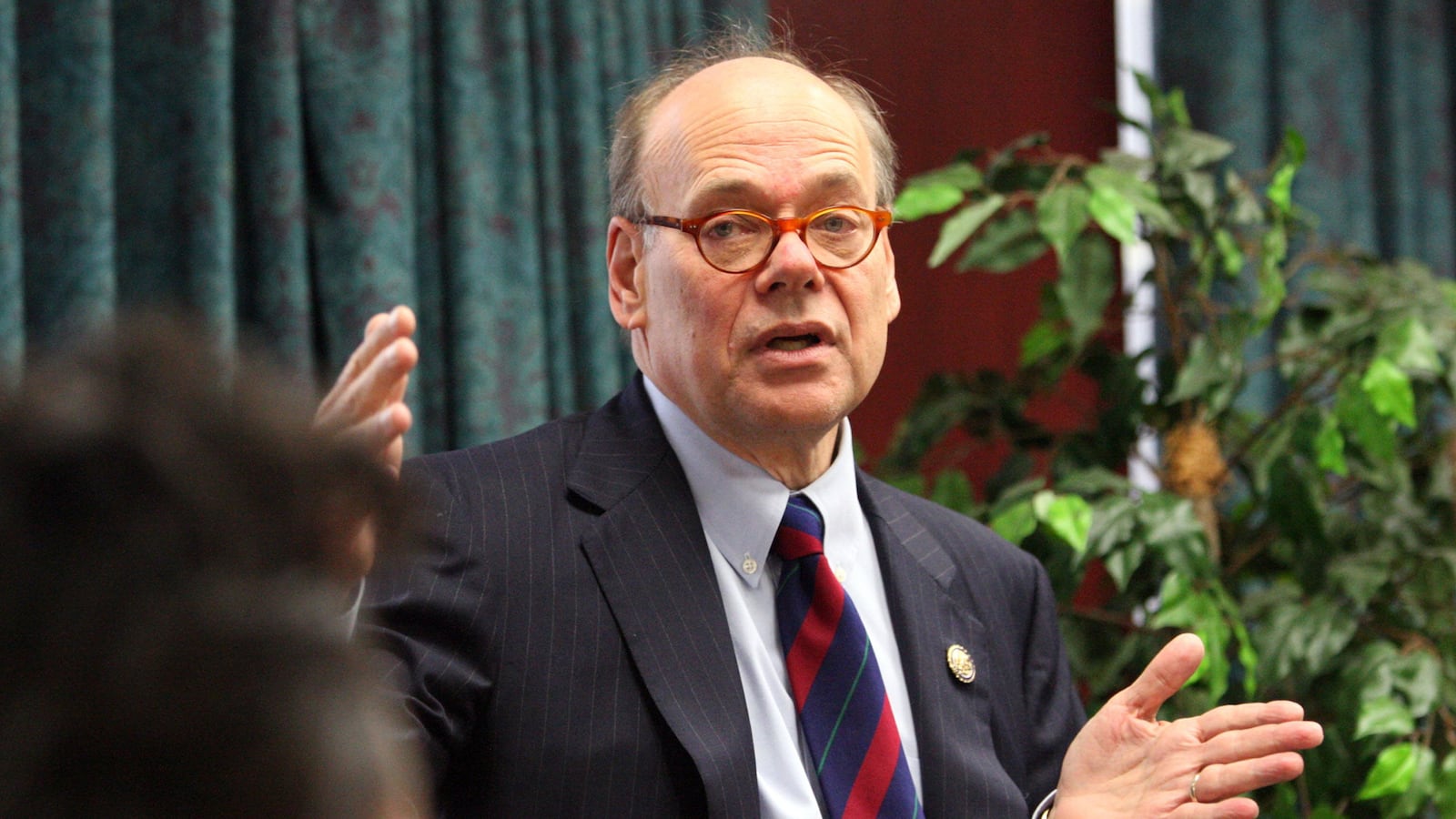When Kate Middleton disgorged her “royal baby,” a number of deeply serious journalists fired up Twitter to harrumph about the obsessive coverage of a deeply unserious “news” event. A day later, the pointless was replaced by the salacious, with the unfortunate return of Anthony Weiner’s fidgety and impatient penis. All of us pretended it was a story of moral outrage and offered sympathy for his perpetually humiliated wife. But we were, of course, mostly giggling at the nom de sext “Carlos Danger” and his profane sexual demands.

For the gossipmongers, it was a relief to have a second act in the Wiener disgrace, because earlier in the week the Washington press corps was disappointed over a sex scandal that wasn’t. In February, Democratic Congressman Steve Cohen was “caught” tweeting an attractive young blonde, and Twitter churned with hopeful tweets that an amusing, Weiner-like collapse would follow. Cohen responded that the recipient of the tweets, an attractive young Texan (and sometime bikini model) named Victoria Brink, was actually his daughter. Chastened, the scandalmongers retreated, until it was revealed last week that a DNA test determined that Cohen was not Brink’s father.
Confusion reigned. And ... game back on.
Last week, Politico’s Mike Allen appeared on MSNBC to suggest, through intonation, flat humor, and overwrought sarcasm, that Cohen had been “busted” in a lie, strongly implying that he was either sleeping with or attempting to seduce Brink: “Oh, she’s my daughter! That’s it ... This is my daughter. Suuuure. .. The DNA test came back and—surprise, surprise!—not his daughter ... Congressman Cohen shocked and dismayed, he says, but still loves her and treasures their time on Twitter together.”
When I spoke to Cohen on Sunday, he unloaded on the influential “Playbook” columnist. “Mike Allen on Morning Joe was just the worst ... He looked like someone out of a Woody Allen movie, some crazy guy on thorazine or something. I used to see crazies. My father was the superintendent at the Western Hospital—a mental hospital—[and] this guy looked like someone right out of the mental hospital.” Those like Allen who were implying that there was something else to the Brink story, he says, are “basically saying I’m having sex with a girl who I thought was my daughter.” The press “made the suggestion that it must have been a sexual thing, because she had been a bikini model years ago, just a short thing on a college campus ... They sexually branded her.”
“My deal isn’t sex. It’s a drama.”
A longtime Cohen friend confirmed to me that Cohen shared the news of his previously unknown daughter three years ago. Cohen also points out that members of his staff and some colleagues on the Hill, like House Minority Leader Nancy Pelosi, had also been contemporaneously informed. “It’s unfathomable to me that the press jumps to so many conclusions and prints them as fact when they have no basis whatsoever to write about the situation”
He upbraided CNN’s Chris Cuomo’s initial coverage of the Brink story (offering an entertaining digression on Cuomo’s interview with Amanda Knox), and Washington Post reporter Chris Cillizza, who has twice awarded Cohen the “worst week in Washington” gong, also came in for scathing criticism. Cillizza once took a dig at Cohen for a “viral video” of the congressman “‘dancing’ to rap music” at a campaign event. “I had polio as a kid. I have a leg with no flection in it.”
One of the great boredoms of writing about politics is the necessity of talking to actual politicians; guarded, scripted, tedious, skilled in euphemism, generally devoid of substance. In a frank and funny conversation, Cohen raged against the media’s hunger for scoops, spoke of his friendships with rock stars Alex Chilton and Warren Zevon (when I asked what he usually discussed with Zevon, who died before Cohen entered Congress, he cracked that their chats were “mostly about sex. We talked politics, we talked music, but we talked a whole lot about chasin’ [girls]”).
But Cohen’s frankness, which many of us claim to want in a politician, has ensured that the non-scandal of the Brink story morphed into something else. When Cohen tweeted last week that an African-American tow-truck driver responded to his story of mistaken paternity by joking that he was “black,” BuzzFeed produced a quick story headlined: “Rep. Steve Cohen Says a Black Guy Told Him He’s Black Because of His Paternity Test.”
Cohen, who represents the majority black 9th district in Memphis and once attempted to join the Congressional Black Caucus, said the media was taking what he considered a flattering joke and attempting to “turn it into a racial thing.” And the comment, he clarified, wasn’t just about the paternity test: “I’m driving an ‘86 Cadillac, which, to be honest—and my staff said ‘don’t say this, because people will think it’s racist too’—[but] black people like Cadillacs...People in Memphis tell me I’m black all the time, that I’m one of them.”
With daggers out for Cohen, attention then turned to a comment he made on the steps of Capitol Hill to RealClearPolitics reporter Caitlin Huey-Burns, who tweeted that the congressman brushed off an inquiry by commenting on her looks: "You're very attractive, but I'm not talking about [the paternity story].” Exasperated, Cohen said that he was merely trying to shake the reporter with a compliment. “I wasn’t trying to flirt with her. If I was trying to flirt with her, I would have talked to her or tried to get her number .... Maybe I’m a little older. I understand the PC world, but in the South often times you see a pretty girl and you say she’s a pretty girl.”
Cohen won’t relinquish his Twitter account, complaining that in Congress “staff people try to shut everyone up; they say ‘take his Twitter account away.’” But he sees it as an important tool for directly interacting with critics and constituents, and as a “way to express your humor and chill with some people.” But recent events have given him pause.
“It’s insane. Now I’m afraid to talk or write anything.”






